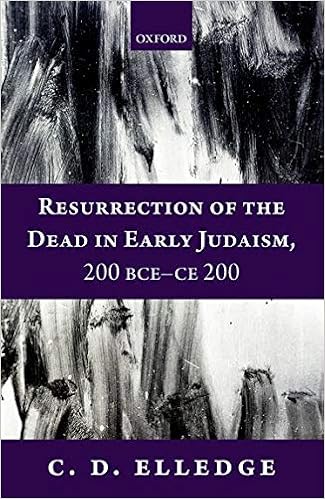With regard to the definition of resurrection, there are numerous ways to think about what it entails. Here are some possibilities: (1) It is a resurrection to a physical body from a state of "soul sleep." (2) It is a resurrection to a transformed (spiritual) body from a state of unconsciousness. (3) It is a resurrection to spirit, sans body. (4) It is a resurrection from a middle state of semiconciousness to full consciousness again. (5) It is a reuniting of the physical body with the eternal soul. (6) It is only for a few of the very righteous. (7) It is only for the righteous, with those who are evil remaining dead or in a semiconscious state. (8) It is for everyone, for judgment, with those who are evil being sent to further punishment. Elledge passes through various early Jewish writings to show how all of these are possibilities depending on which work you focus on. In other words, he shows that there was not full unity with regard to what resurrection meant or entailed. He also shows how some accepted mere death as the end all and be all for all and others accepted the idea of an immortal soul.
Elledge also delves into various theories regarding the origins of the belief, including that it came from Persian Zoroastrainsim, that it came from Babylonian and Assyrian mythologies, and that it developed natively within the Jewish community. (Early Jewish teaching emphasizes "immortality" through one's descendants.) He discusses why the theory likely found acceptance--that it tied into concepts regarding creation and regarding the need for justice. Next, he focuses on resurrection in specific works, before closing out with a discussion of where Josephus got his ideas with regard to the differing sects' beliefs on resurrection and how the varying beliefs came to affect Jewish rabbinical views and Christians toward the end of the period discussed. With regard to Josephus, Elledge notes that he was likely simplifying and "translating" said belief for others, putting it into terminology that Greeks and Romans would understand, which while presenting a truth necessarily loses some degree of precision in said translation.
Although a fine overview, the work is definitely a scholarly one--detailed and difficult in places.







1 comment:
Great ppost thanks
Post a Comment